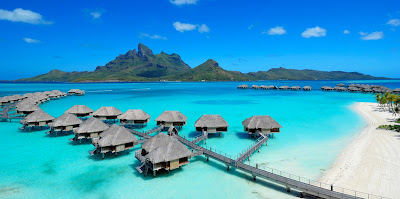转载# 各国英文名字的由来,你知道吗?
你有没有好奇过自己国家的名字是怎么来的 ? 或者,世界上其他国名的起源是什么?
这是我在网搜时候,突然发现了各国名字的由来。摘自@https://m.sohu.com/n/525327436/?wscrid=95360_7
研究人员得出结论说,
地球上几乎所有的国家都是按四大类中的其中一类命名的,部落、地貌、方位和人物,只有20个国家是例外。
一起来了解一下世界各国的命名之道。
地球上几乎所有的国家都是按四大类中的其中一类命名的,部落、地貌、方位和人物,只有20个国家是例外。
一起来了解一下世界各国的命名之道。
事实上,世界上几乎所有国家的名字来源都属于以下四种:部落、地貌、方位描述和重要人物。
这是Quartz网站分析了《牛津简明世界地名词典》中列出的195个国家名称后得出的结论。
下面,我们就分别举例来说一说。
Tribe
names 部落名
1) 英格兰和世界上的很多国家(约三分之一)一样,都是以早期部落或种族的名字命名的。England is in
good company with the lion’s share (about a third) of the world’s countries
named after an early tribe or ethnic group.
2) 法国:以法兰克人命名,法兰克人在中世纪征服了法国大陆。FRANCE –
Named after the Franks, who conquered the land in the Medieval ages.
3) 越南:得名于南部的越人。VIETNAM –
Named after the Viets of the South.
4) 阿富汗:翻译过来是“阿富汗人的土地”。AFGHANISTAN –
Translates to "Afghan-land; place of the Afghans”.
5) 泰国:和泰族人有关,泰族是泰国中部平原地区的一个民族。THAILAND –
Relates to the “tai” people, an ethnic group from the central plains region.
6) 俄罗斯:名字源于中世纪拉丁词Russi,指的是这片土地上的人民。RUSSIA – From
the Medieval Latin term “Russi”, which denoted the people of the land.
Important people 重要人物-
在以重要人物命名的国家中,只有一个国家是以女人的名字命名的……
Important people 重要人物-
在以重要人物命名的国家中,只有一个国家是以女人的名字命名的……
1) 圣卢西亚——这个加勒比海岛是法国人在1625年以天主教女圣人圣露西的名字命名的,圣露西在中世纪受到广泛崇拜。SAINT LUCIA –
This Caribbean island was named by the French in 1625 after the Catholic Saint
Lucy, who was widely worshipped during the Middle Ages.
2) 哥伦比亚:得名于著名探险家克里斯托弗?哥伦布,而巧的是,哥伦布从未踏足这个国家。事实上,哥伦比亚于1499年被哥伦布的同伴阿隆索?德?奥赫达发现,但最终还是以哥伦布的名字命名。COLOMBIA –
Named after famed explorer Christopher Columbus, who incidentally never even
set foot in the country. It was in fact discovered by his companion Alonso de
Ojeda in 1499, but was eventually named after Columbus anyway.
3) 菲律宾:1542年西班牙探险家路易?洛佩斯?迪?维拉罗勃斯以当时的西班牙国王菲利普二世的名字命名的。PHILIPPINES –
Named by Spanish explorer Ruy López de Villalobos, in honor of King Philip II
of Spain in 1542.
4) 沙特阿拉伯:得名于受人爱戴的贵族战士埃米尔?穆罕默德?本?沙特,一般认为,他在1744年创立了第一沙特王国。SAUDI ARABIA
– After esteemed warrior and aristocrat Emir Muhammad bin Saud, who is
considered the founder of the First Saudi State in 1744.
5) 塞舌尔:1976年,这个美丽的印度洋群岛摆脱英国统治获得独立,但此前,塞舌尔曾受法国控制,在18世纪以法国财政大臣让?莫罗?迪?塞舌尔的名字命名。SEYCHELLES – In 1976, this beautiful chain of islands in the Indian Ocean gained independence from the UK but before that it was controlled by France and was named after French minister of finance Jean Moreau de Sechelles in the 1700s.
5) 塞舌尔:1976年,这个美丽的印度洋群岛摆脱英国统治获得独立,但此前,塞舌尔曾受法国控制,在18世纪以法国财政大臣让?莫罗?迪?塞舌尔的名字命名。SEYCHELLES – In 1976, this beautiful chain of islands in the Indian Ocean gained independence from the UK but before that it was controlled by France and was named after French minister of finance Jean Moreau de Sechelles in the 1700s.
6) 萨尔瓦多:这个中美洲小国得名于耶稣,翻译过来是“救世主”。16世纪以西班牙征服者佩德罗?德?阿尔瓦拉多的名字命名。EL SAVADOR –
This tiny country in Central America takes its name from Jesus and translates
to "The Saviour". It was named by Spanish conqueror Pedro de Alvarado
in the 1500s.
1)冰岛:国名从古挪威语翻译过来是“冰之岛”,据说是公元856年挪威北欧海盗Hrafna-Flóki Vilgerðarson起的名字,理由再明显不过了。尽管这个名字无视了冰岛的大片绿地,但是许多人推测,起“冰岛”这样的名字是为了打消潜在移民者打算入侵的念头,“冰岛”这个名字让人以为那里的环境冰冷、难以生存世界上大约四分之一的国家名字来源于本国某种独特的地貌。
ICELAND –
This moniker translates to "Land of Ice", perhaps for obvious
reasons, from the ancient language of Old Norse, and is said to have been named
by Norwegian Viking Hrafna-Flóki Vilgerðarson in 856 AD. This ignores Iceland’s
plentiful green landscape, however, and many theorise that Iceland was named as
such to dissuade potential settlers from invading what would have sounded like
a cold, hostile environment.
2) 海地:这个加勒比海国家的名字在本土台诺语中的意思是“多山之地”。海地于1492年被西班牙殖民,原名是La Española,但在1804年被曾为奴隶的革命者让-雅克?德萨林改名为“海地”。德萨林自立为皇帝,收回国土。
HAITI – This
Caribbean country’s name translates to "mountainous land" in its
indigenous Taíno language. It was colonised by Spain in 1492 and originally
named “La Española”, but was later renamed “Haiti” in 1804 by former slave and
revolutionary Jean-Jacques Dessalines, who declared himself emperor and took
back the land.
3) 巴巴多斯:这个名字在葡萄牙语中的意思是“有胡子的”,可能源于无花果树上垂下来的长长的须根,在16世纪晚期殖民者发现了这一景观并为之赞叹,由此而得名。
BARBADOS –
This name translates to ‘the bearded’ in Portuguese, which is thought to be due
to the long hanging roots of the fig trees that were noticed and marvelled at
by colonizers in the late 16th Century.
4) 乌克兰:乌克兰在12世纪得此国名,“乌克兰”一词在古斯拉夫语中的意思是“邻近边境”。实质上,该词曾被用于指代当时的东斯拉夫国家基辅罗斯境内的一段领土。
UKRAINE –
Ukraine was labelled as such during the 12th Century and translates to “near
the border” in Old Slavic. Essentially it was used to define an area of
territory within what was then the East Slavic state of Kievan Rus.
Location
方位 - 用方位命名的国家是这四大类中数量最少的,大概有25个。
1) 澳大利亚:“澳大利亚”一词是古希腊人造的,翻译过来是“未知的南部土地”,但到19世纪早期才由英国制图师马修?弗林德斯宣布为官方国名。
AUSTRALIA –
First coined by the Ancient Greeks, Australia translates to “Unknown Southern
Land”, but was officially declared by this name in the early 1800s by English
cartographer Matthew Flinders.
2) 挪威:挪威这个名字要追溯到古英语,意思是“北方的道路”,880年由盎格鲁-撒克逊人首次提到。
NORWAY –
Conversely, this country traces its name to the Old English term for “northern
way”, first mentioned in 880 by the Anglo-Saxons.
3) 日本:日本人普遍使用Nippon这个国名,意思是“日出之国”,指其位于中国以东的地理方位。
JAPAN –
Nippon, which is the name commonly used by Japanese natives, means “land of the
rising sun”, referring to its geographical location of being east of China.
There do
exist a smattering of countries in the world which stepped outside the box with
their naming criteria - around 20 of them. While some are disputed or their
exact origins unclear, here is a handful of the most quirky and imaginative...
世界上确实有少数国家的命名方式突破常规——大约有20个。
其中有些国名存在争议或起源不明,但也有几个国家的命名方式非常离奇而富有想象力,一起来看看:
1) Bhutan, which
calls itself Druk Yul, means "land of the thunder dragon" on account
of the magnificent storms that tear through the Himalaya Mountains.
不丹,在本国语言中是Druk Yul,意思是“雷龙之地”,源于喜马拉雅山脉地区壮观的雷雨。
2)There are several theories as to the origin of Nepal's name, one of which makes reference to Kathmandu's sheep-rearing history, given that in Tibetan, "ne" means "home" and "pal" means "wool" - ergo "the home of wool"
2)There are several theories as to the origin of Nepal's name, one of which makes reference to Kathmandu's sheep-rearing history, given that in Tibetan, "ne" means "home" and "pal" means "wool" - ergo "the home of wool"
关于尼泊尔国名的起源,有好几种理论,其中一种说法和加德满都的养羊历史有关:在藏语中,ne意思是“家”,而pal意思是“羊毛”,因此Nepal的意思是“羊毛之家”。
3)Nauru, one of
the world's most remote islands and the smallest state in the South Pacific,
might take its name from the native term "anáoero" - which rather
charmingly means, "I go to the beach".
瑙鲁是世界上最遥远的岛屿之一,也是南太平洋中最小的国度。“瑙鲁”可能源于本土词anáoero,这个词有个迷人的意思,就是“我去海滩”。















评论
发表评论